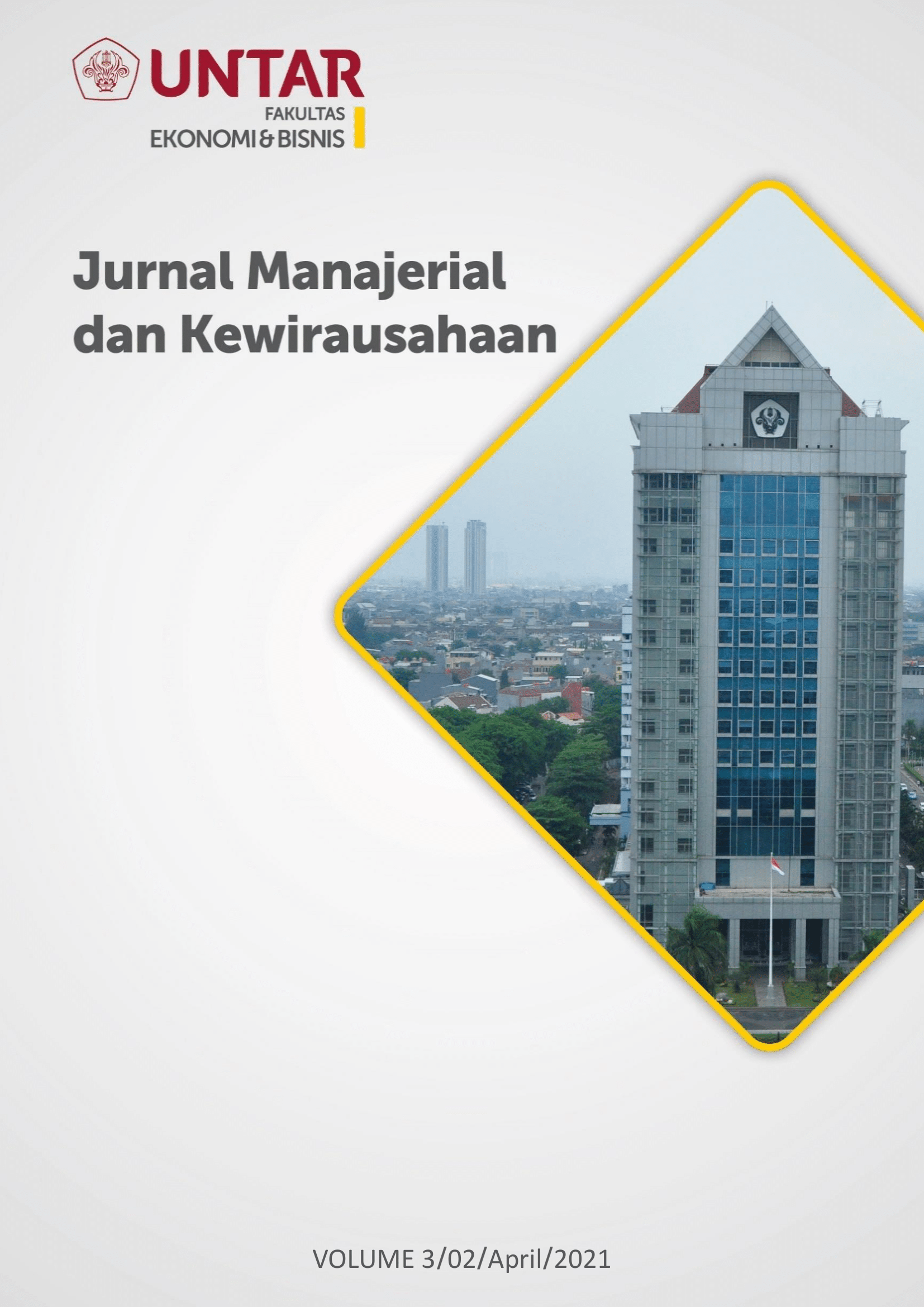Pengaruh Financial Behavior, Financial Attitude, Dan Financial Capability Terhadap Financial Satisfaction
Main Article Content
Abstract
The purpose of this research is toexamine the effect of Financial Behavior, Financial Attitude and Financial Satisfaction. The samples of this study is the people of Riau who are already working. The sample was selected by convenience sampling method amounted to 165 respondent with an online questionnaire help by Google form. The data analysis technique used is structural equation modeling assisted bu the SmartPLS program. The result of this study show that there is an influence of Financial Behavior, Financial Attitude, and Financial Capability on Financial Satisfaction.
Tujuan dari penelitian ini adalah untuk menguji pengaruh Financial Behavior, Financial Attitude terhadap Financial Satisfaction. Sampel penelitian ini adalah masyarakat Riau yang sudah bekerja. Sampel dipilih dengan metode convenience sampling berjumlah 165 responden dengan bantuan kuisioner online bantuan Google Form. Teknik analisis data yang digunakan adalah Structural equation modelling yang dibantu program SmartPLS. Hasil penelitian ini menunjukkan bahwa terdapat pengaruh Financial Behavior, Financial Attitude, dan Financial Capability terhadap Financial Satisfaction.
Article Details
Section
This work is licensed under a Jurnal Muara Ilmu Ekonomi dan Bisnis Creative Commons Attribution-ShareAlike 4.0 International License.,/p>
References
Arifin, A. Z. (2018). Influence Factors toward Financial Satisfaction with Financial Behavior as Intervening Variable on Jakarta Area Workforce. European Research Studies Journal, 21(1), 90-103.
Chandra, J. W., & Memarista, G. (2015). Faktor-Faktor yang Mempengaruhi Financial Satisfaction pada Mahasiswa Universitas Kristen Petra. FINESTA, 3(2), 1-6.
Irwandi, Firli (2020). The Role of Financial capability as Education and Financial Satisfaction Mediator in indonesia student studying in the Netherland.
Joo, S. & Grable, J. E. (2004). An Exploratory Framework of the Determinants of Financial Satisfaction. Journal of Family and Economic Issues 25(1): 25-50.
Sahi, S. K. (2013). Demographic and socio?economic determinants of financial satisfaction. International Journal of Social Economics, 40, 127-150. doi:10.1108/03068291311283607
Taylor, M. (2011). Measuring financial capability and its determinants using survey data. Social Indicators Research, 102(2), 297–314
Toscano, E. V., Amestoy, V. A. & Del Rosal, R. S. (2006). Building Financial Satisfaction. Social Indicators Research, 77(2), 211-243.
Veenhoven, R. (2011). Greater happiness for a greater number: is that possible? if so, how?. Published in: Sheldon, K.M., Kashdan, T.B. & Steger, M.F. (Eds.) Designing Positive Psychology: Taking Stock and Moving Forward. New York: Oxford University Press.
Xiao, J. J. (2008). Handbook of Consumer Finance Research. New York, NY: Springer Science, Business Media, LLC.
Yulianti, N., & Silvy, M. (2013). Sikap Pengelola Keuangan dan Perilaku Perencanaan Investasi Keluarga di Surabaya. Journal of Business and Banking, Vol. 3, No.1, pp. 57-68.
Zimmerman, S. L. (1995). Understanding family policy: Theoretical approaches (2nd ed.). Sage.

